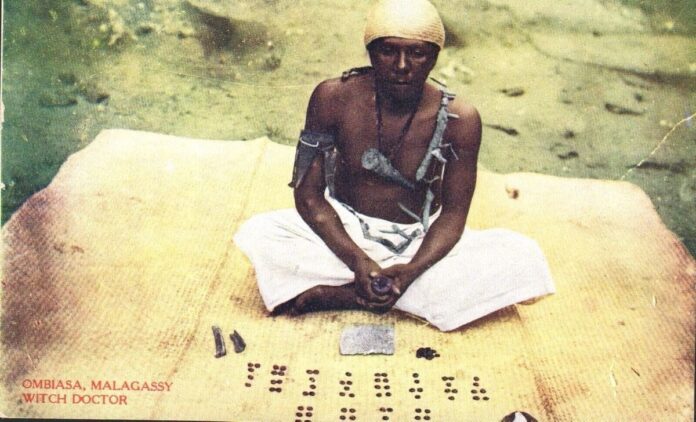Madagascar, the world’s fourth-largest island, is often celebrated for its unique biodiversity and rich cultural heritage. Among the island’s treasures are the traditional healers known as ombiasa—the revered medicine men of Madagascar.
These spiritual and medicinal practitioners play a crucial role in the health and wellbeing of the Malagasy people. For centuries, they have passed down ancient knowledge of medicinal plants and spiritual healing, often bridging the gap between modern medicine and traditional beliefs.
The Role of the Ombiasa
In Madagascar, the ombiasa is more than just a healer. They serve as intermediaries between the physical and spiritual worlds, offering a holistic approach to healing that addresses both the body and the soul.
Their methods combine herbal medicine, spiritual rituals, and divination to treat physical ailments, mental conditions, and spiritual imbalances.
Many Malagasy people, especially those in rural areas, consult ombiasa for everything from common illnesses like headaches and stomachaches to more complex conditions such as infertility, anxiety, or hexes believed to be caused by curses or spirits.
Knowledge of Nature
One of the most fascinating aspects of the ombiasa is their deep knowledge of Madagascar’s natural environment. The island is home to an estimated 13,000 plant species, of which more than 80% are found nowhere else on Earth. The ombiasa are experts in harnessing the healing properties of these plants.
Common remedies may include:
- Ravintsara (Cinnamomum camphora): An antiviral and antibacterial plant often used to treat respiratory problems, skin issues, and infections.
- Voacanga (Voacanga africana): Known for its alkaloid compounds, it is used for ailments like hypertension, digestive problems, and even as a mild sedative.
- Prunus africana: Traditionally used to treat prostate issues and inflammation.
This knowledge is often passed down through generations orally, ensuring that their practice remains rooted in ancestral wisdom. However, much of this plant knowledge remains a closely guarded secret within families or clans of healers.
Spiritual Healing
In addition to using plants and herbs, the ombiasa practices spiritual healing, which may involve rituals, sacrifices, and divination to communicate with the ancestors.
These healers believe that many ailments are caused by disharmony between the living and the dead, or by curses and spiritual unrest. Through their spiritual practices, they seek to restore this balance and bring about healing.
Divination, for instance, is often used to determine the root cause of an ailment. By throwing bones, shells, or seeds, the ombiasa interpret the results to understand the spiritual source of a problem.
They may then recommend a course of action—whether it’s a herbal remedy, a prayer, or a ritual to appease the ancestors.
The Medicine Men and Modern Health
While the ombiasa hold deep respect in traditional Malagasy society, they often work in tandem with modern medical practitioners. In some cases, people may first consult a doctor but later seek the help of a traditional healer for additional support, especially in cases where Western medicine has limited effectiveness.
This integration of traditional and modern medicine has made the ombiasa invaluable in Madagascar’s healthcare system. With public health resources stretched thin in many parts of the island, ombiasa serve as a critical source of care in remote communities. They help treat diseases such as malaria, diarrhea, and infections that are common in rural areas.
Challenges and Preservation of Knowledge
Despite the essential role of the ombiasa, their practice faces significant challenges today. Globalization, urbanization, and the growing reach of Western medicine have all contributed to a decline in the number of young people interested in becoming ombiasa. The knowledge that has been passed down through generations is in danger of being lost as fewer apprentices take up the mantle.
Another pressing issue is the depletion of Madagascar’s natural environment. Deforestation, agriculture, and illegal logging have put many of the medicinal plants that ombiasa rely on at risk of extinction. As the natural landscape changes, the healers may lose access to the plants they need to practice their craft.
The medicine men of Madagascar are not just healers; they are cultural custodians, safeguarding knowledge that has been part of Malagasy society for centuries. Their role as intermediaries between the physical and spiritual realms, combined with their deep understanding of nature, makes them vital to the health and cultural identity of the Malagasy people. However, the challenges they face today threaten the continuity of their traditions.
These guardians of traditional healing remind us of the deep connection between culture, nature, and health that has sustained societies for millennia.


Very informative article.
Thank you. I’m glad you found the article informative.